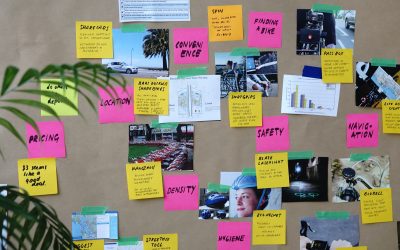If your confidence has been knocked after receiving a rejection letter, asking for feedback can help you gain more clarity on the situation.
We’re going to walk you through how to ask an employer for feedback, so you can improve and impress at your next job interview.
When should you ask for feedback?
You should ask the employer for feedback once you’ve found out that you haven’t gotten the job. If you receive a rejection email, respond within 24 hours. If it’s a phone call, ask them for feedback on the call. If you miss a call from them and they let you know via voicemail, you should call them back to ask.
Things you shouldn’t do
- Don’t call outside of business hours and leave voicemails. Call during business hours so you can catch someone who can direct you to the right person.
- Don’t call repeatedly in one day. They may never get back to you if you make yourself a nuisance to the company.
- Apologise. If your interview was a disaster, there’s no point in saying sorry – it’s done now. Whether you had an off day or not, the moment has passed.
- Don’t take it too hard. We all feel a bit deflated after being told we didn’t get a job we jumped through hoops for, but if you’re planning on asking for feedback, you should remain composed and respectful – don’t let your emotions take over the situation. Nothing will come from arguing, or persuading them to choose you instead. It will simply make you appear desperate. If you had a bad interview, they won’t change their minds now.
- Don’t push back if they do give you criticism. Part of asking for feedback is accepting it and listening to it. Many employers will not offer any feedback after rejecting you, so you must appreciate that if this person does take the time out of their busy day to talk you through their reasons, it should be respected.
Things you should do
- Appreciate the feedback they give to you – as we said earlier, not many will, so getting first-hand feedback from the person who interviewed you could be the difference between you getting another job in the near future, or making the same mistakes over and over again, sacrificing more opportunities
- Leave the door open. While you shouldn’t be persuading the employer to give you another chance, there is another way that you can end the call with the prospect of speaking with them again in future. Simply thank them for the opportunity and ask them to keep your application on file if anything further opens up. Something as simple as:
“I really appreciate you taking the time to talk this through with me, thank you very much for the opportunity. If in future a role crops up that you think I could be more suited to, please don’t hesitate to give me a call to discuss it.”
- Stay positive – maybe this just wasn’t the role for you? The positives to take away from this experience include: Gaining more experience at interview stage; gaining feedback so you can improve for future interviews; knowing that you pushed yourself to go for this job, even though you may not have been ready – now hopefully, you have a better understanding of what a similar employer could be looking for
How can I improve?
- Listen to the feedback you receive from the employer and use it to your advantage for future opportunities. You can practice with friends or family.
- If the feedback was based around the interview e.g. nerves, lack of confidence for the role, public speaking, general interview skills, you could start doing mock interviews with a career coach to improve. This is where you could learn that you tend to waffle, and therefore aren’t being very specific at interview stage, or you’re too modest – perhaps your answers aren’t detailed enough. There are so many things that could prove to be your shortfall in an interview – so tackle them head on.
- Didn’t get any feedback at all? We would still suggest considering a career coach or asking a friend who had to go through extensive interviews for their job, and see if they can help you identify any flaws.
- Use the interview tips from our career advice blog to help!
Not working
The ultimate marketing job interview guide
When recruiting for marketing roles the interview panel will, first and foremost, be looking for strong communication skills and a quick, inventive mind
Ten ways to improve your marketing CV
It goes without saying that a brilliant CV will be your ticket to an interview and your dream marketing job. All the advice from job-hunting experts says spend plenty of time getting your resume right. Don’t be sloppy, and in the ever-competitive world of marketing, try as hard as you can to make yourself stand out from the crowd.
Five tips for complying with the new EU Cookie Law
EMEA marketers are scratching their heads, wondering how to go about compliance with the EU Privacy Directive that officially became law in the United Kingdom on 25 May 2012. The directive mandates that all companies marketing into the UK obtain consent from website visitors in order to store and retrieve usage information from their computers.
Shell leads FTSE 100 in digital marketing
Shell has landed the top spot in a survey of the UK’s most digitally connected corporate brands in the FTSE 100. For marketing professionals, Shell’s digital marketing strategy can be used as a benchmark for good practice in the industry, say experts. Other high-scoring brands include Kingfisher, SABMiller, Aviva, and Unilever so observing how they use the various channels for digital marketing will be helpful to marketers.
Five ways to stay motivated during your marketing job search
We all begin to feel frustrated when the search for a new job drags on. It’s worth remembering that very few people are successful with every job application they make. The trick for marketing professionals in today’s tough economic climate is to try and learn something from each failed job application, take it on the chin, and move on. Here are five tips on how to stick with it, as you search for your perfect marketing role:
Why your next marketing recruit should have creativity at their heart
It is the yin and yang of marketing. One of the raging debates in the field is that of the relative importance of the big-ideas creative versus the data analyst and technician. Which is more important? The ideas and content creator, or the...








